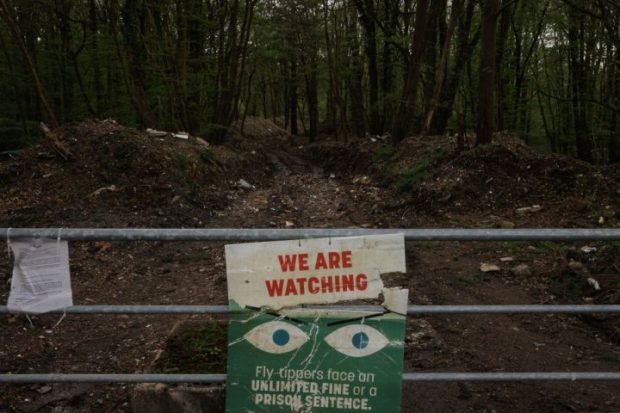‘Poet’, said Robert Frost, ‘is a praise-word’. So it is. That explains in part the unabashed delight with which Colm Tóibín, speaking in our current Book Club podcast, talks about publishing his fine first poetry collection Vinegar Hill – decades of international acclaim as a novelist notwithstanding. Poetry is a high-status artform, perhaps the highest.
Yet unlike most other artforms, very many people seem to think of it as something that anyone can do. You wouldn’t expect to be able to write a symphony, or build a suspension bridge, or win Wimbledon, without many years of apprenticeship and intimate attention to the work of those who have excelled in those things. Yet as anyone who’s ever edited a poetry magazine can attest, the number of people who write poetry is very much greater than the number who show much interest in reading it or learning from other practitioners.
Which brings us, I’m afraid, to Bono. His poem about the war in Ukraine, read out in the White House by Nancy Pelosi on St Patrick’s Day, united the English-speaking world; not in outrage at Mr Putin’s war but in the puckering of intimate orifices in embarrassment. Perhaps, one day, declassified documents in the Biden Presidential Library will set the story out for the historical record – but for the moment we are left to imagine how the conversation that led to that moment went.
Did Bono, happening to be on the blower to Nancy, mention that he’d written a poem? Did she then say (as no sane person ever says when a friend tells them that they’ve written a poem) that she’d like to see it? Was she then so impressed she begged him to be allowed to read it out to the world? Or did Bono somehow, dementedly, approach the White House pitching to have his verse included in the St Patrick’s Day celebrations? Did the apex of power in the free world then think, more or less: ‘Bono’s famous: a poem by him will add a bit of class’. That is to trivialise a serious art.
Presenting something as a poem isn’t a way of making an ordinary utterance special. There needs to be something, rather, about the utterance that demands to be a poem. ‘Poet’ doesn’t mean ‘sayer’. It means (hence the Scots makar) ‘maker’. It’s a technical craft rather than a tendency to have important thoughts. ‘What oft was thought’, as Pope’s An Essay on Criticism has it, ‘but ne’er so well expressed’. And a poem is made, in the first place, out of sound. You need to have an ear.
Bono, you might think, has an ear. As well as being the full package as a pop star he is a very good singer-songwriter and a pretty good rock lyricist. But rock lyrics and poetry aren’t the same thing. You can substitute a weak syllable with a drum fill, you can let the tune carry you over an awkward stress or two, you can get away with heavier rhymes than most modern poets would be comfortable with. The words are only one half of the assemblage. Poetry is a very much more unforgiving discipline.
And his poem’s failure was not therefore that it said something silly or banal (though it did): it’s that it was technically incompetent to a degree that constituted an insult to the very craft of verse. Take the first (and, arguably, the best) stanza:
Oh, St Patrick he drove out the snakes
With his prayers but that’s not all it takes
For the snake symbolises
An evil that rises
And hides in your heart, as it breaks
Opening a poem with the makeweight syllable ‘oh’ – unless you’re writing a ballad or a sea-shanty – looks a bit odd, but let’s give that one a St Paddy’s Day pass. Here at least Bono establishes his verse-form without any obvious metrical howlers. Two anapaestic trimeters, two dimeters and another trimeter. That’s the form most of us will recognise as… a limerick. Apt to St Patrick’s Day, perhaps – but it’s at the very least, shall we say, ambitious to appropriate an established comic form for a war poem.
The imagery is muddy, too: the snakes that St Patrick drove out symbolise an evil that rises to hide in your heart as ‘it’ (presumably the heart) breaks. Are these snakes rising to conceal themselves in broken hearts in flight from St Patrick? Was he supposed to finish the job? What else does it take? We are not told.
Stanza two makes things little clearer. The snake of evil has risen again. When we last encountered it, it had slithered up our symbolic trouser-leg to hide from St Patrick in a broken heart. Now it rises further – to the larynx, perhaps, or the earlobe. The ‘darkness’ out of which it ascends is no longer, seemingly, that of ‘your heart, as it breaks’ but of ‘some men’ (the rhythm puts the stress on ‘men’ when the qualifier ‘some’ really wants the emphasis; he doesn’t mean ‘any old men’):
And the evil has risen my friends
From the darkness that lives in some men
But in sorrow and fear
That’s when saints can appear
To drive out those old snakes once again
The sorrowful heart is no longer the hiding place for a snake. Now it is a sort of bat-signal, summoning the harassed old saint to come back and complete his half-finished herpeticide. ‘Those old snakes’, meanwhile, makes no sense at all: it has a jarringly discordant jocularity, and it achieves it at the cost of the rhythm. You could have cut ‘old’ and let the beat fall on ‘drive’ rather than ‘out’, which would have issued in a perfectly respectable di-dum diddy dum diddy dum. Bono chose not to.
In the third stanza, the whole thing unravels entirely.
And they struggle for us to be free
From the psycho in this human family
Ireland’s sorrow and pain
Is now the Ukraine
And St Patrick’s name now Zelensky
Who is ‘they’: the snakes? The second line, with the insertion of ‘human’, is suddenly asked to digest two completely superfluous extra syllables (to say nothing of the line forcing the stress in ‘family’ onto the last syllable: ‘fami-LEE!’). After two stanzas of regular diddy-dums, this is the prosodic equivalent of crunching into second gear while doing 65 on the motorway. And Ireland’s sorrow and pain is now the Ukraine’s, not the Ukraine, surely. Sorrows and pains are now the Ukraine’s? The final line forces the stress on Zelensky’s name, again wrongly, onto the last syllable, and asks it to rhyme with ‘family’ and ‘free’. The whole point of the payoff is Zelensky’s name – and it can’t even pronounce it right. A poem wants to have a rhythmic logic, and a symbolic logic, and a grammatical logic – all working in some way to complement each-other. This one has none of those things.
I’m put in mind of the austere words of the poet August Kleinzhaler in his review of Garrison Keillor’s first collection of verse: ‘the indefatigable and determined purveyor of homespun wisdom has wandered into the realm of fire, and for his trespass must be burned’. Same applies here. Either she’s a blithering eejit herself and the Democratic party contains not one person competent to tell poetry from doggerel – or Nancy Pelosi must really have it in for Bono.
Got something to add? Join the discussion and comment below.
Get 10 issues for just $10
Subscribe to The Spectator Australia today for the next 10 magazine issues, plus full online access, for just $10.




















Comments
Don't miss out
Join the conversation with other Spectator Australia readers. Subscribe to leave a comment.
SUBSCRIBEAlready a subscriber? Log in